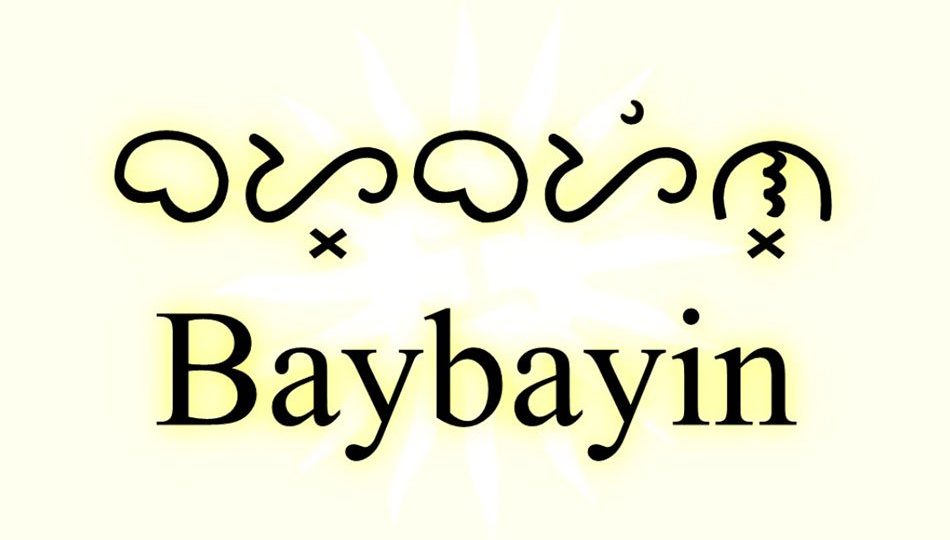Anyone who has visited the Philippines quickly notices that, unlike most countries in the region, the country gives pride of place to the Latin alphabet, the logical extension of centuries of Spanish and English-language usage. This is seen in the country’s street signs, newspapers, and billboards. But that could change if a new bill, recently approved by a House committee, is enacted.
Yesterday, the Philippine House of Representatives announced that the House Committee on Basic Education and Culture has approved a bill proposing to make the ancient script Baybayin the “national writing system.”
House Bill 1022 or the proposed “National Writing System Act” was filed by Pangasinan Rep. Leopoldo Bataoil and backed by the Department of Education, the National Commission for Culture and the Arts, and Baybayin advocacy group Buhayin.
Baybayin is a pre-Hispanic system of writing that is rarely used today, if at all.
Most Filipinos don’t know how to read or write in Baybayin, so the bill plans to distribute reading materials to public and private schools and agencies.
That said, don’t expect for schools to suddenly start using curriculum in the ancient script. The bill currently on the table appears a bit more symbolic in nature, focusing on mandating the addition of Babayin translations to everything from street signs, to newspaper mastheads, to canned goods at the supermarket.
Rep. Bataoil believes reviving the script is a way of preserving Filipino culture.
“The importance of writing in general and of the alphabet in particular for the preservation and progress of civilization is incalculable,” he said.
Whether or not you agree that mandating Baybayin usage could be a boost to cultural preservation/Filipino pride, implementing the law would likely be a tall order.
Beyond mandating that private companies add Baybayin translations to packaged food products, for instance, changing our public signage would obviously require a sizable outlay by the government, and the bill’s current iteration fails to specify any budget to accomplish it.
Similar bills have also been proposed in the past, including one filed by Bataoil in 2014. In the same year, then-Senator Loren Legarda filed a similar bill. Neither made it past the committee level.
Some people have also pointed out that Baybayin can never be truly “national” because it is a Tagalog-based system and ignores writing systems used by other regions in the Philippines.




